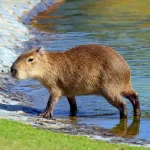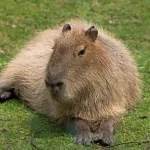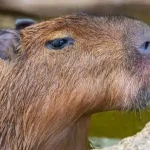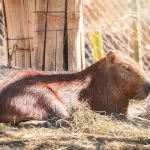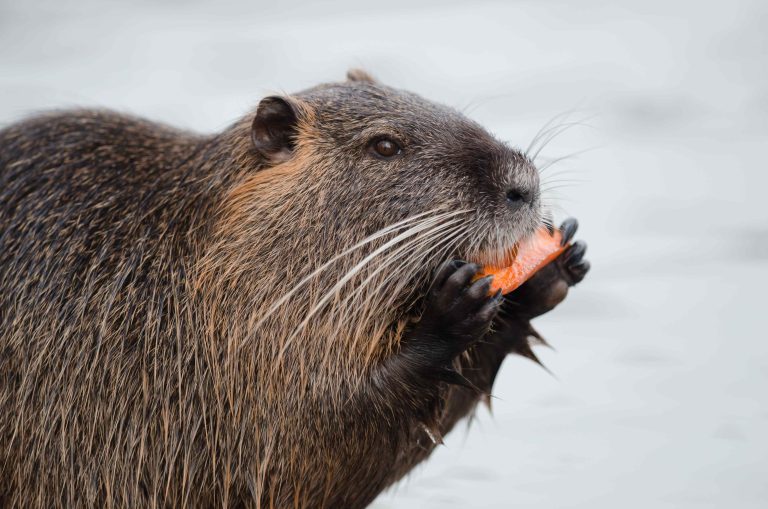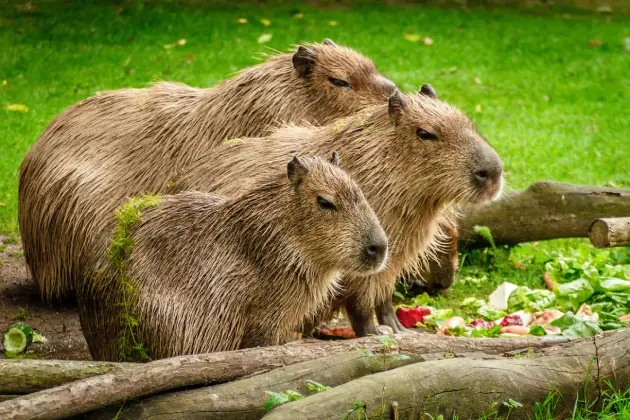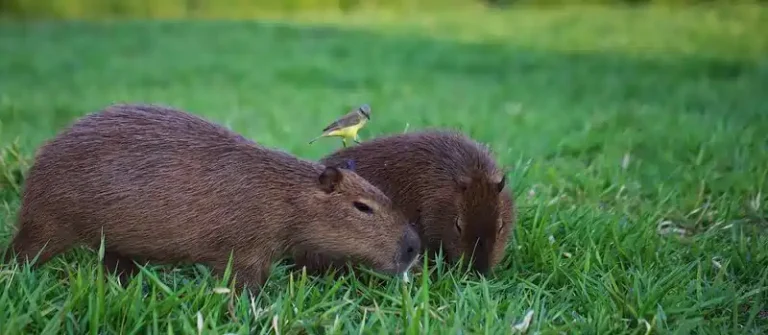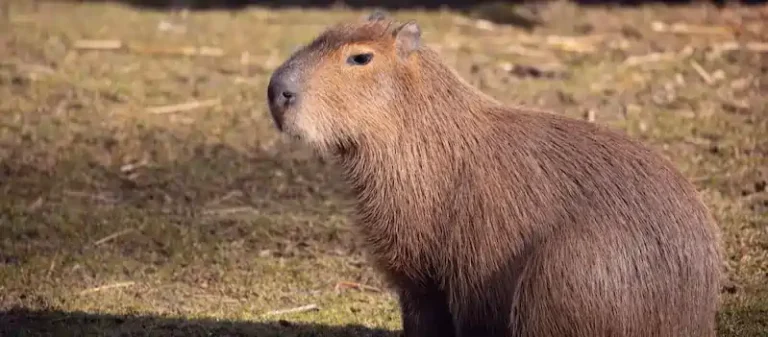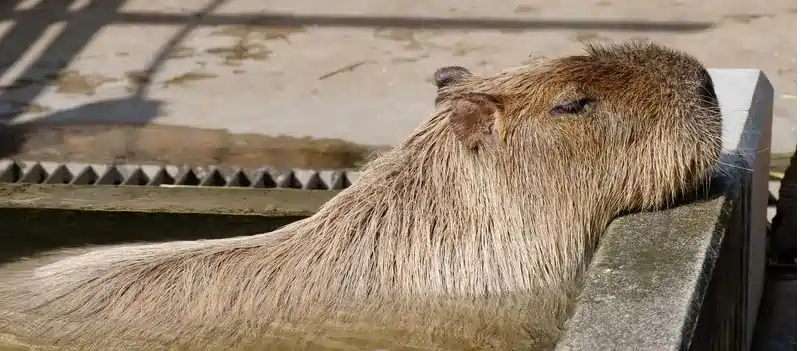
Capybaras are fascinating animals. Known for their friendly and social nature, these large rodents have become a favorite among people looking for unique pets. However, before you decide to bring a capybara into your home, it’s important to understand whether you can legally own one where you live. If you’re in Nevada, you might be wondering whether owning a capybara is possible. In this article, we’ll discuss the legal requirements, the care needed, and everything else you should know about owning a capybara in Nevada.
What Is a Capybara?
Capybaras are the largest rodents in the world. They are native to South America and are closely related to guinea pigs. Capybaras are semi-aquatic animals, meaning they spend a lot of time in and around water. These animals are gentle, social, and enjoy the company of other capybaras. They are herbivores, which means their diet primarily consists of grasses, fruits, and vegetables.
Because of their calm temperament, capybaras make great pets for those who can provide them with the right environment. They need ample space to roam, access to water for swimming, and companionship to stay happy and healthy. Their social nature means they don’t like being alone, so it’s best to have at least two capybaras if you’re considering owning them.
Can You Own a Capybara in Nevada?
In Nevada, the legal status of owning a capybara depends on the county and city where you live. Generally speaking, owning a capybara in Nevada is legal, but it comes with certain conditions. Like other states, Nevada has laws regarding the ownership of exotic animals. While these laws vary across different counties and cities, the general rule is that exotic pet ownership requires permits, and specific guidelines must be followed to ensure that the animal is properly cared for.
Do You Need a Permit?
In most cases, owning a capybara in Nevada will require you to obtain a permit. The state and local government agencies want to make sure that exotic animals are being kept in safe and proper conditions. This is to prevent harm to both the animal and the environment. The requirements for obtaining a permit may vary by location, so it’s important to check with your local authorities or the Nevada Department of Wildlife to see if you need one and how to apply.
Is There a Special License for Exotic Pets?
Nevada has a specific licensing system for exotic animals, and while capybaras are not typically banned, they may require a special exotic pet license. The permit or license usually requires that you prove you have the proper facilities to house the animal, including a secure enclosure, access to water, and a proper diet. It’s also necessary to show that you understand the animal’s behavior and care needs.
Some counties or cities within Nevada may have stricter regulations, so it’s always a good idea to check with your local government or the Nevada Department of Wildlife before getting a capybara. They can help you understand what steps you need to take to legally own a capybara in your area.
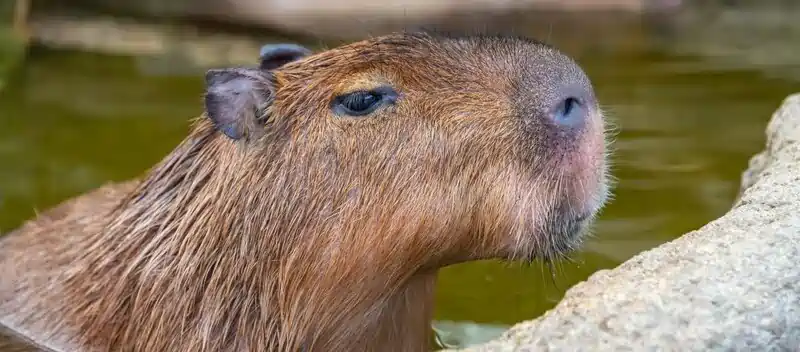
Considerations for Owning a Capybara
Before getting a capybara, it’s important to understand the level of care they require. Capybaras are not like typical household pets. They have special needs that must be met in order to keep them healthy and happy. Here are some things you should consider if you’re thinking about owning a capybara in Nevada:
Space and Housing Requirements
Capybaras are large animals, and they require a lot of space to roam and explore. They are best suited to homes with large yards or properties that can accommodate their size. A small apartment or crowded environment is not ideal for a capybara, as they need plenty of space to move around.
In addition to space, capybaras need a secure enclosure to keep them safe. This should be a large, fenced area that provides them with room to run, graze, and socialize. You will also need to ensure that the enclosure has a water source for swimming and drinking, as capybaras love water and need it for their well-being.
Companionship
Capybaras are highly social animals. In the wild, they live in groups, and they rely on companionship for their mental and emotional health. It’s important to keep at least two capybaras if you decide to own them, as they can become lonely and stressed if kept alone. If having more than one capybara isn’t an option, you will need to be prepared to give them plenty of attention and social interaction.
Water Needs
Capybaras are semi-aquatic animals, and they require access to water to stay happy and healthy. They love to swim and soak in water, so providing them with a pond, pool, or even a kiddie pool is essential. In Nevada’s warm climate, a water source will also help them stay cool during hot weather.
Diet and Health Care
Capybaras are herbivores, which means they eat a diet primarily made up of grasses, hay, vegetables, and fruits. It’s important to provide them with a balanced diet to ensure they stay healthy. You should also be prepared to take them to the vet for regular check-ups. Like other exotic animals, capybaras may need specialized veterinary care.
If you’re planning to own a capybara in Nevada, it’s important to have a veterinarian who is familiar with exotic pets. This will ensure that your capybara receives the best possible care.
Legal and Ethical Considerations
While owning a capybara in Nevada is generally legal with the proper permits, there are still ethical considerations to keep in mind. Capybaras are not domesticated animals like cats and dogs. They have specific needs that must be met in order to ensure their well-being. Before bringing a capybara into your home, it’s important to consider whether you can provide the right environment and care for them.
At Capybara Pet Info, we encourage responsible pet ownership. Owning a capybara is a big commitment, and it’s important to be fully informed before making the decision to adopt one.
Alternatives to Owning a Capybara
If you live in Nevada and find that owning a capybara is not possible due to legal restrictions or other factors, there are still ways to enjoy these fascinating creatures. Many zoos and animal sanctuaries house capybaras and offer the chance to observe them up close. You can learn about their behavior and social dynamics while supporting conservation efforts.
Another option is volunteering at an animal rescue or sanctuary that houses exotic animals, including capybaras. Volunteering allows you to interact with capybaras while helping care for them and supporting their well-being.
Conclusion
Owning a capybara in Nevada is legal, but it comes with certain requirements and responsibilities. Before getting a capybara, make sure you check with your local authorities to determine whether you need a permit or license. You should also be prepared to meet their care needs, including providing ample space, water access, and companionship.
Capybara Pet Info is dedicated to helping potential capybara owners understand what it takes to care for these amazing animals. If you’re considering adding a capybara to your family, make sure you’re ready for the commitment that comes with it. With the proper care and attention, capybaras can make wonderful, unique pets.
Frequently Asked Questions (FAQs)
1. Is it legal to own a capybara in Nevada?
Yes, it is legal to own a capybara in Nevada, but you may need a permit or license. Check with your local authorities for the specific requirements.
2. Do I need a special permit to own a capybara in Nevada?
Yes, in most cases, you will need a permit to own a capybara in Nevada. Contact your local government or the Nevada Department of Wildlife for more information.
3. Can I keep a capybara in an apartment?
No, capybaras are large animals that require a lot of space. They are best suited for homes with large yards or outdoor enclosures.
4. Do capybaras need to live with other capybaras?
Yes, capybaras are social animals and should ideally be kept in pairs or groups. If kept alone, they can become lonely and stressed.
5. What kind of diet do capybaras need?
Capybaras are herbivores and eat a diet made up of grasses, hay, vegetables, and fruits. It’s important to provide them with a balanced diet to keep them healthy.

